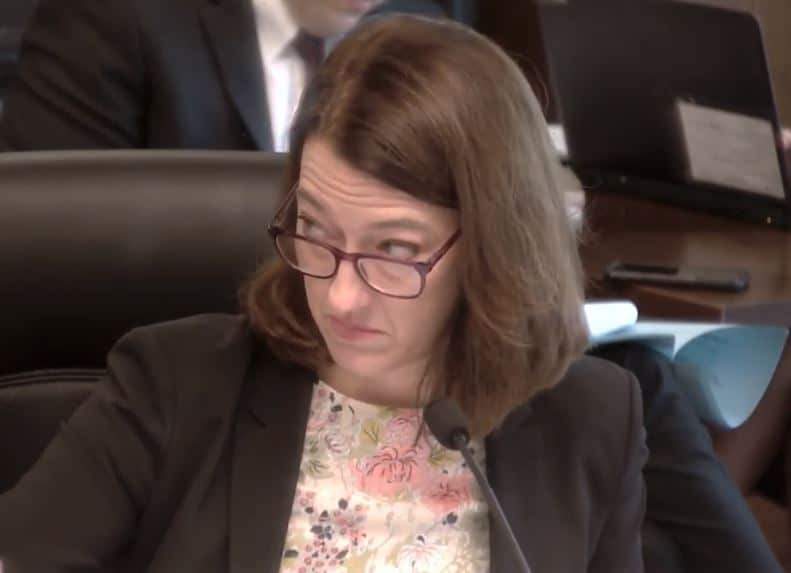FEC Quorum Proves Short-Lived, As GOP Commissioner Resigns

WASHINGTON – Barely a month after regaining its ability to take major enforcement actions, the Federal Elections Commission is once again losing its quorum.
On Friday, longtime Republican commissioner Caroline Hunter submitted her letter of resignation to President Donald Trump, effective July 3.
Depending on how quickly Trump names a replacement, Hunter’s departure could mean the agency’s hands will effectively be tied heading into the fall campaign and November election.
It took the president several months to replace Matt Petersen, also a Republican and the commission’s vice chair, after he announced his resignation last August.
The agency, which is designed to have three Democrats and three Republicans, requires four commissioners for a quorum.
Petersen’s departure left the FEC with only three of the six commission seats filled heading into the 2020 election cycle, meaning the panel couldn’t legally call any meetings, issue fines, conduct audits, make rules or make decisions on investigations.
In March it was reported the commission had a back-log of more than 300 pending cases, including several related to alleged foreign interference.
It was only last month that the Senate voted 49-43 to confirm Petersen’s replacement, Texas attorney James “Trey” Trainor III, allowing the commission to get back to work.
Hunter did not explain her reason for departing or its timing in her brief resignation letter.
Instead, she said she believes her record at the FEC “reflects my strong commitment … to support and defend the Constitution of the United States.”
As a commissioner, she wrote, “I fought to protect Americans’ First Amendment rights of free speech and association, and to administer the laws as written by Congress and interpreted by the courts, rather than as some wished them to be.”
Hunter, who was appointed by President George W. Bush, went on to say she fought against “unnecessary government regulations and unfair enforcement actions; to promote transparency and consistency in the FEC’s operations; and to ensure due process in its dealings with the American people.”
But Hunter also referred to friction at the FEC — saying her “battles” at the commission “were often hard won” — and took a parting swipe at fellow FEC commissioner Ellen Weintraub, a Democrat, with whom she often battled.
“One commissioner,” she said, without mentioning Weintraub’s name, “routinely mischaracterizes disagreements among commissioners about the law as ‘dysfunction’, rather than a natural consequence of the FEC’s unique structure, misrepresents the jurisdiction of the agency and deliberately enables outside groups to usurp the commission’s role in litigation and chill protected speech.
“The American people deserve better,” Hunter added.

Weintraub handled Hunter’s jab with equanimity, telling Politico in a text message that their disagreements were “well known.”
“I’m not going to take potshots at a colleague on her way out the door. I wish Caroline well and hope she enjoys her new position,” Weintraub said.
Hunter is joining the legal team of the Koch-funded group Stand Together, a nonprofit that works on criminal justice reform, education and poverty and addiction issues.
FEC vice chair Steven T. Walther, an independent who often votes with Weintraub, said in a statement that Hunter had earned “the highest regard among her peers for her solid and professional leadership skills.”
“She has been an ardent and effective advocate of her views on campaign finance and the duties of the FEC and a conversation with her invariably led to a better result. Her dedication and sense of humor made her one of the most effective and respected commissioners,” Walther added.






















